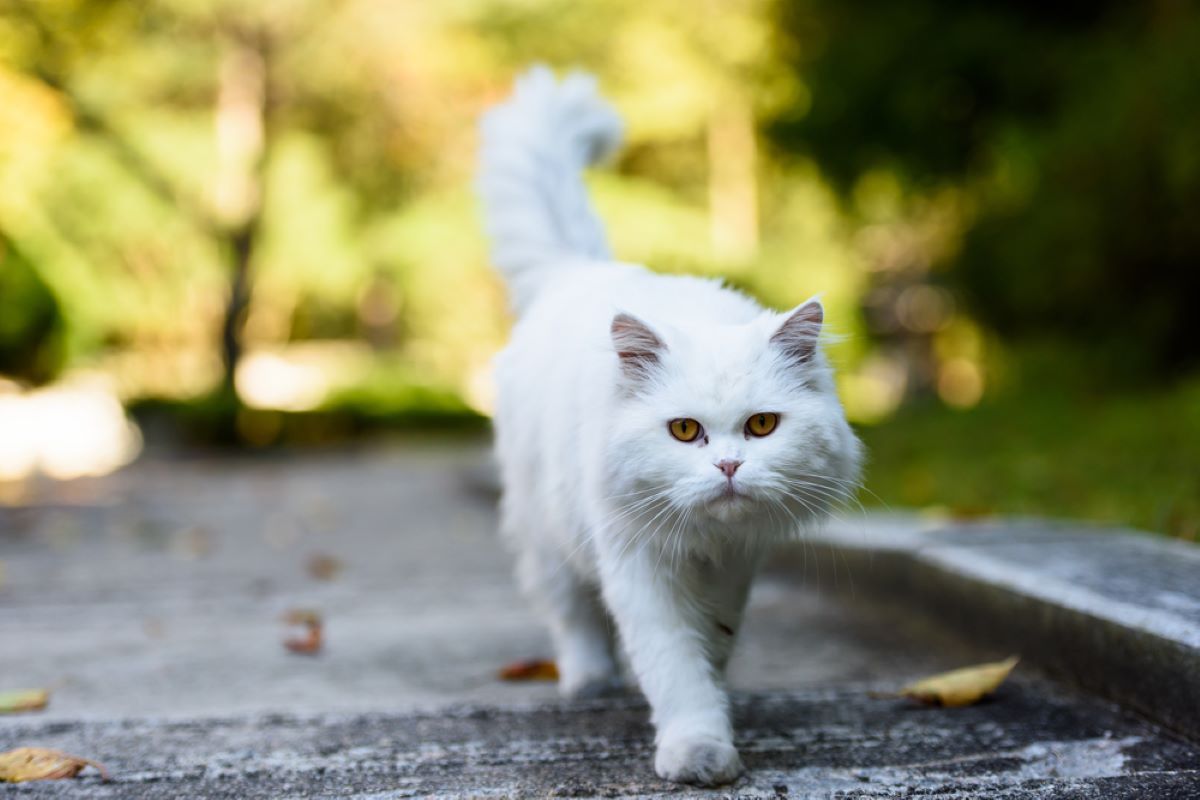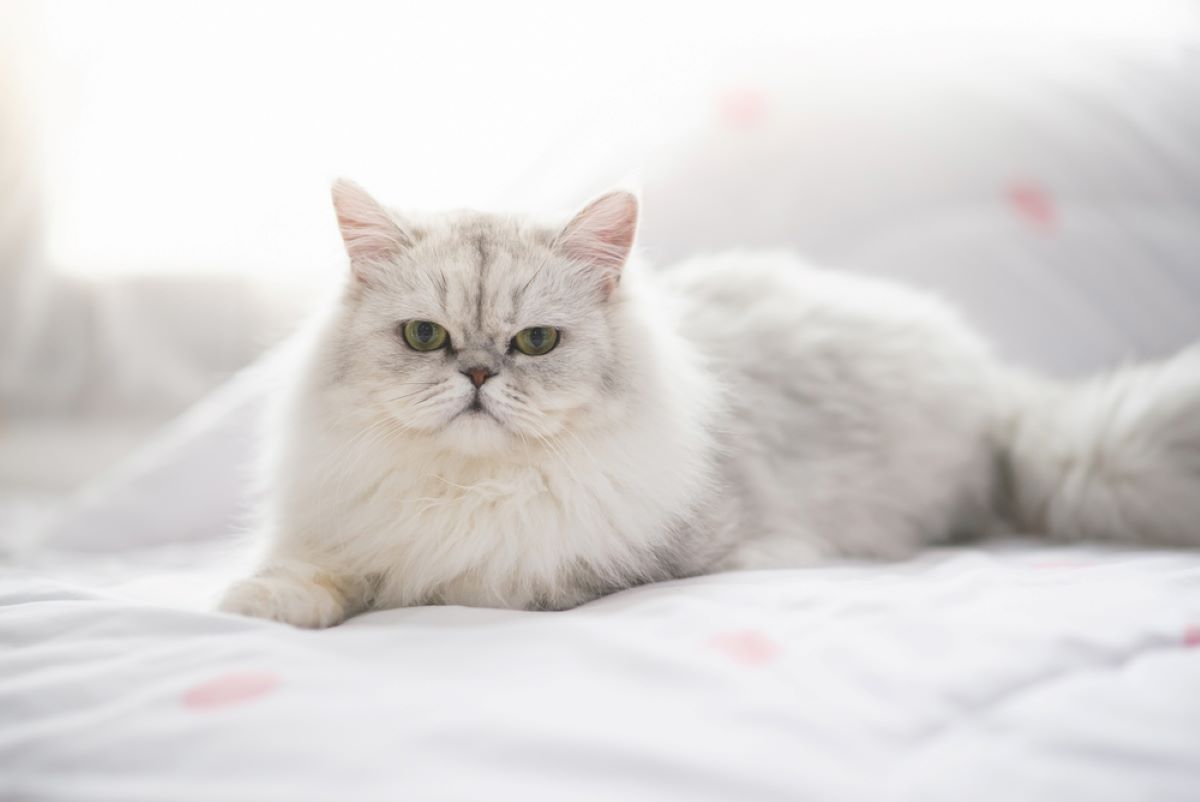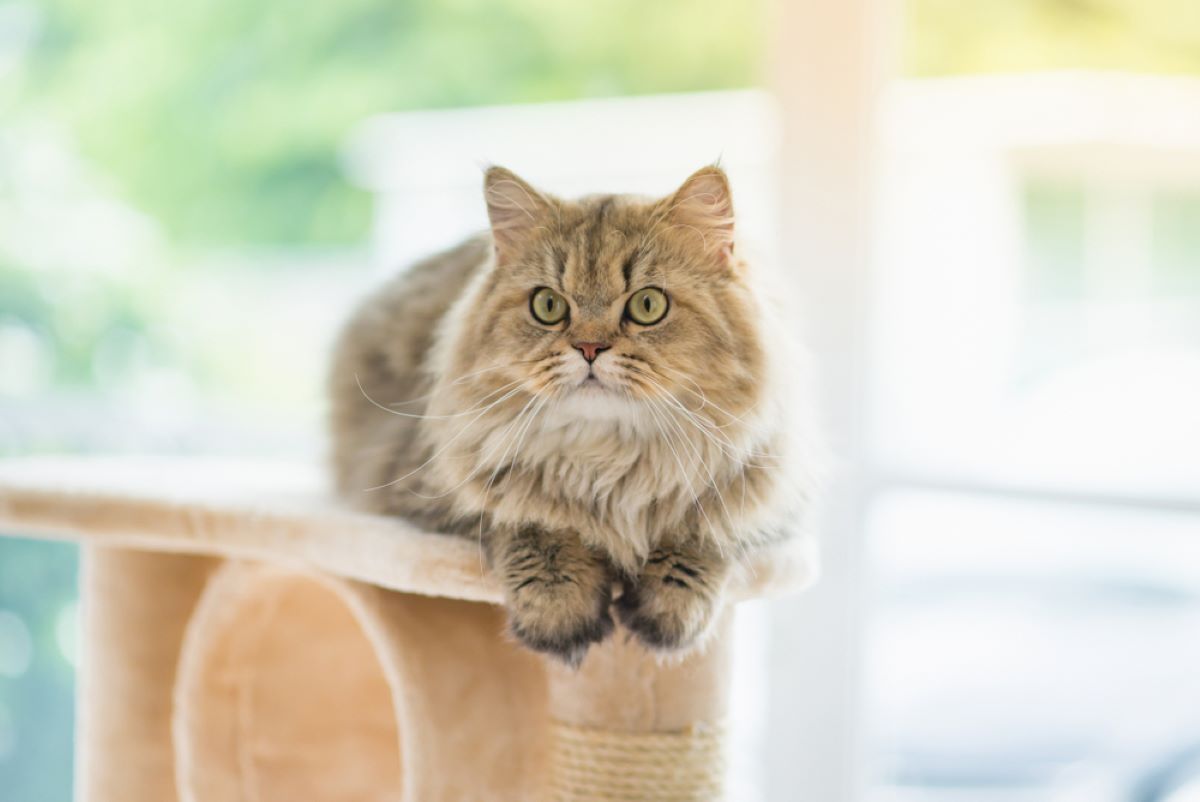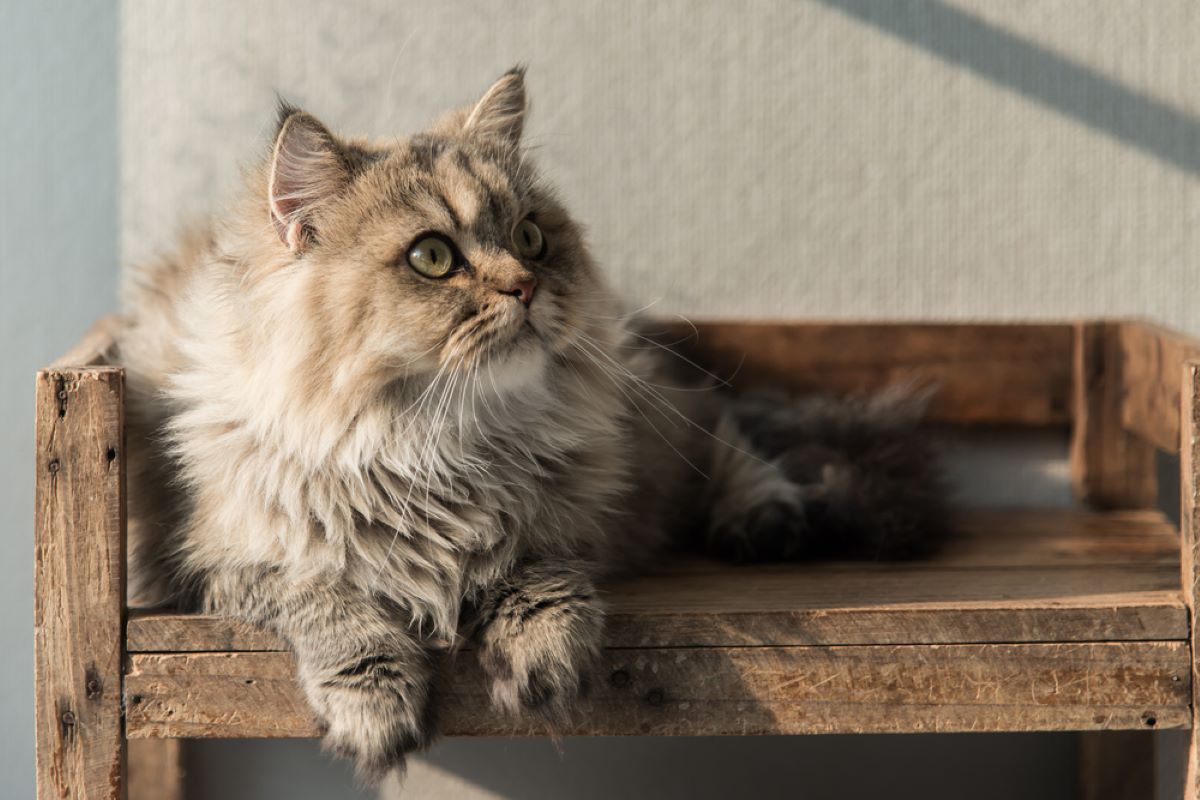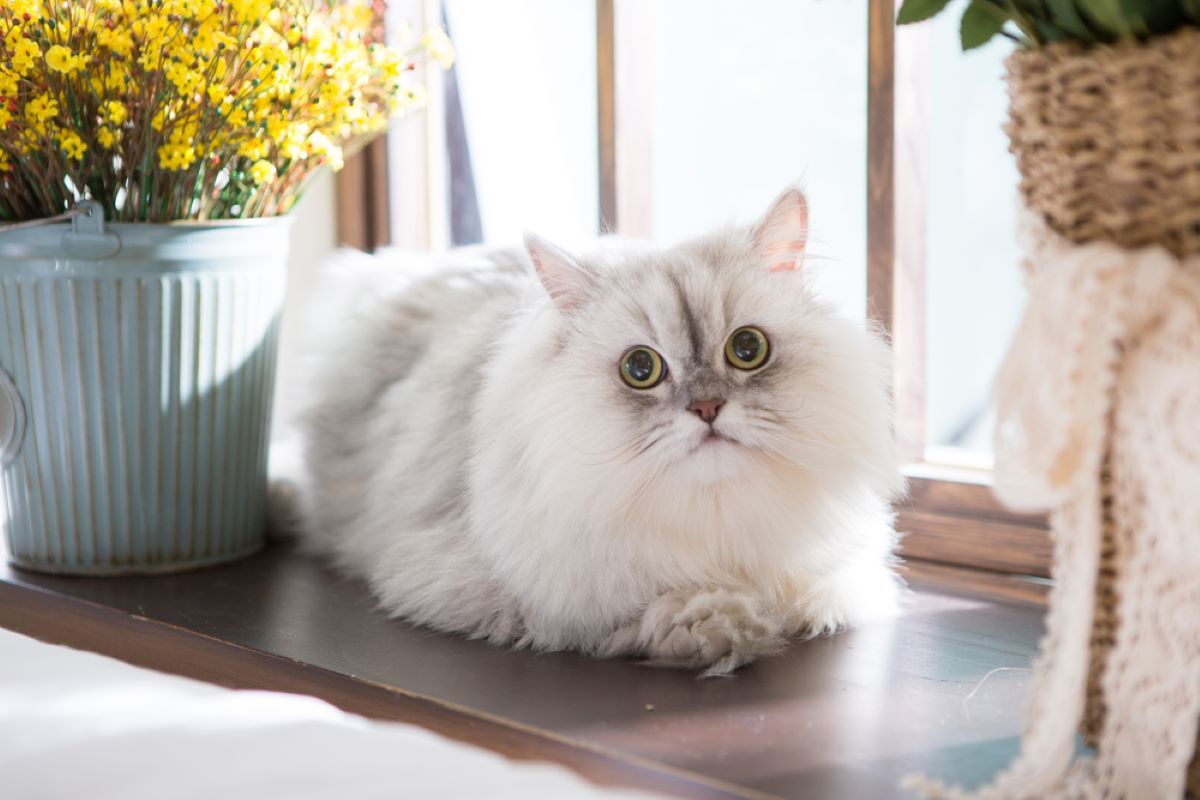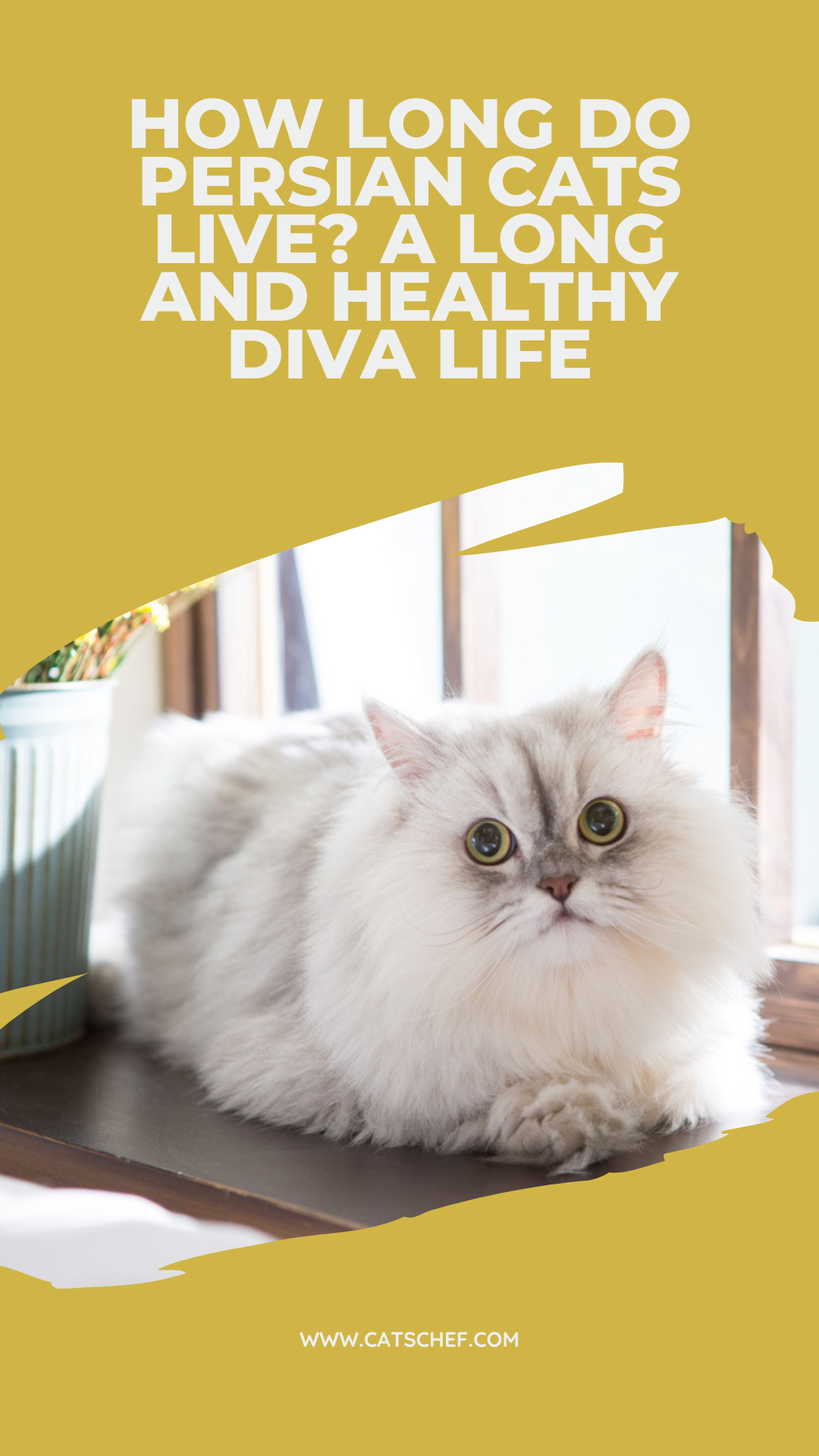📖 Table of Content:
Every cat parent fears the day they lose their dear fluff, no matter how young she is. That’s probably why you’re out here, trying to figure out how long do Persian cats live. Even though your beautiful feline is purring by your side, perfectly healthy, you still want to know what to expect.
Being a cat parent to a Persian kitty is a wonderful experience. These beautiful divas bring pleasure, joy, and light into every home their fluffy paws enter. It’s easy to fall in love with their beautiful faces and personalities, so it comes as no surprise that you want to keep them around for as long as possible.
Although every cat is different, there are some things you can pay attention to when it comes to the health of your Persian. A healthy feline will live a longer and happier life, so make sure you’re giving your fluff proper care throughout the years.
Unfortunately, these wonderful chubby felines are prone to some health issues. Although not every Persian has them, it’s important to know which are the most common ones, so you know what to pay more attention to.
It’s hard knowing that your cuddle buddy won’t always be by your side, but it shouldn’t be something you obsess over. Rather, make sure you enjoy every moment you get with your wonderful fluff and consider yourself blessed that you get to spend all these years with such an amazing kitty.
Although it varies between felines, it’s still good to know the average lifespan of a Persian cat, as well as the potential health issues she might face. That way, you’ll know what to expect, and learn how to take good care of your feline companion.
How long do Persian cats live? What’s their average lifespan?
A Persian cat who’s living a healthy life full of care typically lives between 12-18 years. On average, a Persian cat will spend around 13 beautiful years with her parent. Although this might not seem like a lot, some Persian cats live up to 20! It varies from kitty to kitty, and it shouldn’t be something to worry about.
There are a lot of factors that may influence the lifespan of your Persian. Whether it’s her environment, diet, or lifestyle in general – they can all affect how long your dear fluff stays around. Because of that, it’s important to know what you should pay attention to.
Common health issues of a Persian cat
Unfortunately, our beautiful feline companions are prone to some health issues that can directly impact their lifespan. The good news is, most of these can be avoided with proper treatment and care.
Of course, some things are bound to happen and there’s not much you can do about it, but there are some things that can be avoided with the right breeding program. Persian cats are typically less healthy than average cats, which is why it’s so important to pay attention to where you adopt your kitty from.
The first step in avoiding or treating health issues is knowing what they are. Because of that, we’ll go through the most common health problems Persian cats face so you’re well prepared.
1. Dental issues
Persian cats are known for having small faces. Because of that, their teeth are often crowded, which leads to dental issues. “How do dental problems affect my kitty’s lifespan?”, you’re probably wondering. Well, they don’t directly influence it, but they make our fluffy friends more prone to infections.
Kitties with dental problems are more likely to develop other health conditions. Luckily, all of this is pretty easy to avoid. All you have to do is brush your cat’s teeth regularly, starting from a young age. Persians are pretty chill and laid back, so most of them don’t have issues with this type of grooming.
2. Brachycephalic obstructive airway syndrome (BOAS)
Due to their flattened noses, most Persians suffer from BOAS, which directly impacts their ability to breathe. Because of this, anything that causes breathing difficulty, no matter how minor it may seem, can your cat’s lifespan.
Because they have long coats, they don’t do well in warm climates and are prone to heatstroke and exhaustion. Because of that, it’s important not to leave your kitty outside for too long, especially during summer. Cold weather and air conditioning are important for a Persian’s long life.
3. Urinary tract issues
Persian cats are highly prone to any disease that affects their urinary tract. Although some of these issues can be inherited, a lot of them are caused by infections. Proper breeding is the only way you can avoid inherited diseases, which is why it’s so important to choose a quality breeder.
To avoid urinary tract issues, it’s essential that your cat drinks enough water. Since cats are awfully bad at something as simple as drinking, a good alternative would be giving your kitty wet food. Since it’s high in moisture, it will prevent UTIs and bladder stones, leading to your Persian cat living longer and healthier.
Factors that affect your Persian’s lifespan and what you can do about it
Cat’s lifespan varies from kitty to kitty, and there’s a reason for that. It’s not all up to nature and it has a lot to do with how your feline is living her life. Although there are some factors that are out of your control, there are some crucial ones that you can influence. Here’s what to pay attention to.
1. The quality and experience of her breeder
Persian cats are purebred divas, and there’s a high chance you got your feline bestie from a breeder. People who have more experience usually breed higher-quality kittens. What this means is that the kitties they breed are less likely to develop a genetic health issue than the ones from a less experienced person.
Good breeders pay a lot of attention and they’re often very careful about what cats they breed. They’ll choose the healthiest cats to produce the healthiest kittens. With that, they avoid potential genetic diseases, which helps cats, such as Persians, live long and healthy lives.
Because of that, make sure you choose the right breeder, even if it means paying extra. Cat mills and backyard breeders produce kittens for profit, without any health tests. Not only are a lot of their breeding conditions unethical, but there’s a high chance you’ll end up with an unhealthy cat.
2. Her diet plays a big role
If you’re wondering how long do Persian cats live, then you’re probably thinking of ways how you can prolong your kitty’s lifespan. The first thing you should do is think about her eating habits. It’s something you can easily change and influence, yet it plays a huge role in your feline’s overall well-being.
Cats are no different from humans, and you know what they say: you are what you eat. Because of that, it’s important to choose a high-quality diet for your cat. It typically involves food that is high in moisture and nutrition.
Since Persian cats are prone to urinary tract problems, giving them wet food is crucial in keeping these fluffs healthy, as it’s a good way to prevent UTIs. If your Persian is still a kitten, make sure she’s getting enough nutrition.
If she deals with nutritional deficiencies, she’ll have a hard time developing properly, which can cause other problems later on in her life. On top of that, it’s essential to keep your kitty’s weight normal. Obesity is a huge problem for cats, and it can shorten your Persian’s life significantly.
3. Is she active enough?
Persian cats are known as some of the biggest snuggle bugs that the feline world has to offer. However, no matter how much they want to spend their days lazing around your home, it’s not the healthiest option for them.
Keeping your Persian cat active can help her live a longer life. Since these fluffy giants aren’t super active, to begin with, they don’t require much exercise, but it’s important that it’s regular. After all, you’ll probably love taking a break from work to play with your feline bestie, too.
Don’t let your kitty spend her day laying in one place. She might hate you bothering her at first, but she’ll grow to like the quality time you spend together. If you don’t help her stay active, your feline might develop serious issues later on.
Not only do inactive cats have more chance of developing health problems, but they’re also at a higher chance to become obese. You can encourage your kitty to move with interesting toys and regular playtime. If anything, her naps will be much better later on, and she’ll love everything about her new active life.
4. Is she an indoor or an outdoor cat?
It’s no secret that indoor cats live longer. After all, they’re exposed to less danger cuddled in your blankets and pillows than cats that are roaming and hunting outside. Felines who spend their lives inside live around 10-15 years!
Outdoor cats have a significantly shorter lifespan. That comes as no surprise considering they’re more likely to pick up a disease, a parasite, or to be attacked by another animal. If you’d like to help your Persian cat live longer, it’s a good idea to keep her inside.
Generally, Persian cats are better suited for living indoors. This is especially important if you live in a warmer climate, considering their long coat and sensitivity to heat. That doesn’t mean your kitty should never leave your house; but when she does, it’s important she’s under supervision.
If you still want your Persian cat to get some fresh air and sunshine on her fur, there’s a solution. Creating an enclosed area of your garden just for your fluffy diva would be purrfect. That way she’d experience what’s it like to be outdoors while being perfectly safe.
5. Proper grooming and good dental hygiene
Although you might think grooming has little to do with how long your cat lives, that’s not really the case, especially with Persian cats. Not only does it help with keeping your kitty healthy, but it’s also a great way for you to inspect her and look for any potential skin issues.
Since Persian cats are proud owners of rich, long coats, it’s not very easy for cat parents not to notice skin issues that their furbabies are suffering from. They can deal with many skin and coat problems caused by yeast and fungal infections, parasites, and allergies.
On top of that, proper and regular grooming can reduce hairballs which often, if not brushed out, get stuck in the felines’ intestinal tract. The grooming session should also include cleaning your kitty’s eyes, to avoid any eye infections that Persian cats often suffer from.
Don’t forget to brush your fluff’s teeth, either. Dental issues can be really painful and can cause cats to stop eating. Brushing your Persian’s teeth at least three times a week can help her live a long and healthy life.
